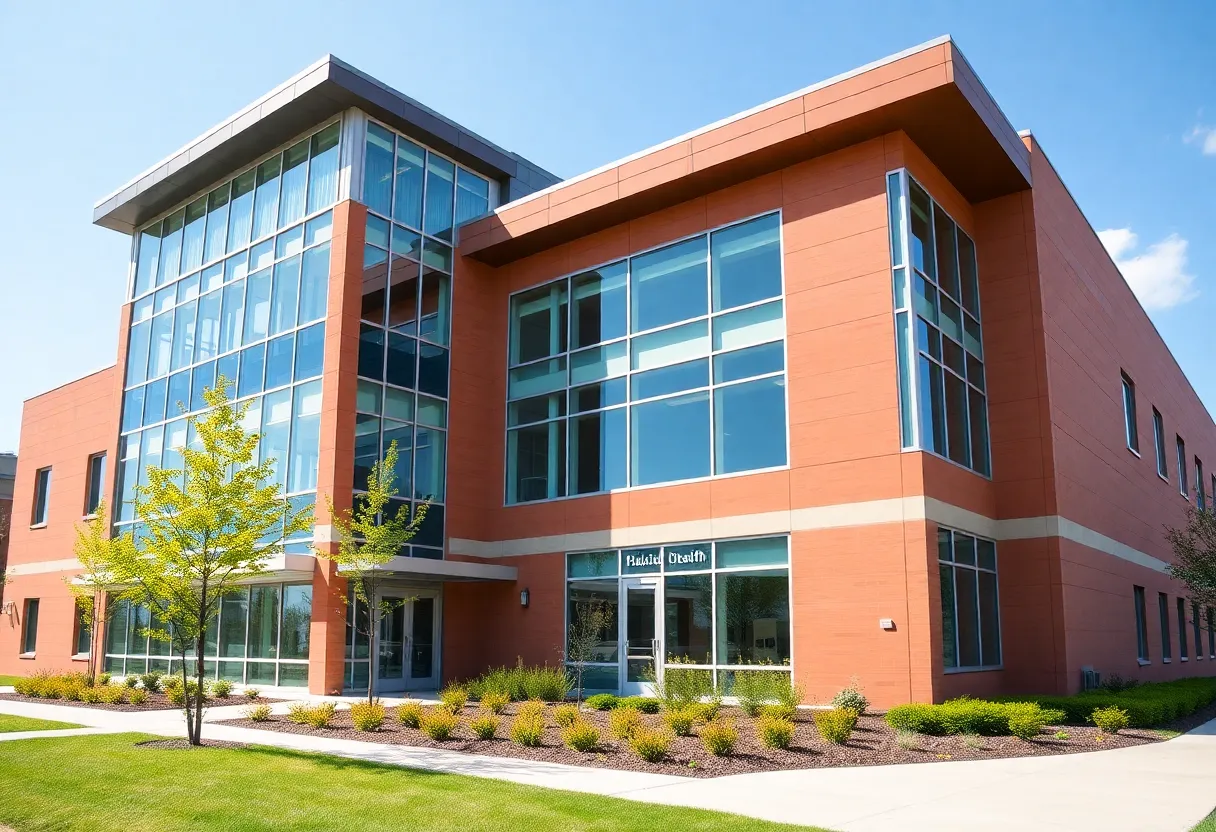News Summary
Rhode Island state officials have announced the construction of a new health laboratory expected to significantly enhance public health monitoring. Located in the I-195 District, the facility will cover 80,000 square feet and serve various fields, including forensics and infectious disease response. With a budget of $98 million, the laboratory aims to be operational by the end of 2025, providing vital services and supporting around 100 employees in monitoring public health threats. The state emphasizes the lab’s role in addressing public health gaps highlighted during the COVID-19 pandemic.
Rhode Island Unveils New State Health Laboratories Expected to Enhance Public Health Monitoring
Rhode Island officials conducted a tour of the construction site for the state’s new health laboratories on Tuesday, signaling a significant advancement in public health monitoring for the region. The facility is strategically located at 150 Richmond Street in the I-195 District and is expected to be operational by the end of 2025.
The new health laboratory will cover approximately 80,000 square feet and will serve multiple fields, including forensics, environmental sciences, infectious disease response, and clinical toxicology. Governor Dan McKee confirmed that the project has an estimated budget of $98 million and has been under development for the past three years.
This facility will support around 100 employees dedicated to monitoring and addressing public health threats. It will provide enhanced services compared to the current health lab, which is situated in a smaller and outdated building on Orms Street. The new facility will be designed to be 20% to 30% larger than the existing lab, equipped with modern features and capabilities.
Key Features and Functions
The new laboratory will have several essential features, including public sample drop-off areas and improved access controls for staff and law enforcement. A dedicated organic chemistry lab will focus specifically on analyzing PFAS, commonly referred to as forever chemicals, known for their environmental persistence and health risks.
The microbiology labs within the new facility will be responsible for monitoring beach water safety and the health of shellfish, vital for both public safety and the local economy. Notably, the lab will also house Rhode Island’s only Biosafety Level 3 lab for high-containment pathogen testing, ensuring the state is equipped to handle serious health threats.
The laboratory’s design places a significant emphasis on public health rather than research. It will primarily analyze local samples without importing hazardous materials. Current public health gaps highlighted during the COVID-19 pandemic led to the incorporation of a flex lab into the design, allowing for surge testing in case of health emergencies.
Innovative Public Health Strategies
The facility will include components for wastewater surveillance, enabling scientists to track emerging pathogens and potential outbreaks effectively. Furthermore, testing for sexually transmitted infections (STIs) will play a significant role in daily operations, with a goal of rapid result turnaround to control the spread of infections.
Funding and Collaboration
The construction of the new health laboratory is predominantly funded by an $82 million grant from the Centers for Disease Control and Prevention (CDC), which remains secure despite broader federal budget uncertainties. The lab’s location is synchronously situated within an expanding laboratory cluster in the Jewelry District, promoting collaboration with academic and industry partners.
Nearby, Brown University is constructing a 300,000-square-foot life sciences facility that will accommodate up to 700 researchers, further enhancing the collaborative research environment in the area.
Architectural Design
The new laboratory will feature modern architectural designs with terracotta cladding and ample windows, creating a bright and open atmosphere conducive to scientific work. This facility is poised to not only bolster Rhode Island’s public health infrastructure but also contribute to its life sciences sector.
As Rhode Island prepares for the completion of its cutting-edge health laboratory, the state’s officials emphasize the commitment to improving public health monitoring and response capabilities for years to come.
Deeper Dive: News & Info About This Topic

Author: STAFF HERE PROVIDENCE WRITER
The PROVIDENCE STAFF WRITER represents the experienced team at HEREProvidence.com, your go-to source for actionable local news and information in Providence, Providence County, and beyond. Specializing in "news you can use," we cover essential topics like product reviews for personal and business needs, local business directories, politics, real estate trends, neighborhood insights, and state news affecting the area—with deep expertise drawn from years of dedicated reporting and strong community input, including local press releases and business updates. We deliver top reporting on high-value events such as WaterFire, Rhode Island International Film Festival, and Rhode Island Comic Con. Our coverage extends to key organizations like the Greater Providence Chamber of Commerce and Providence Warwick Convention & Visitors Bureau, plus leading businesses in finance and manufacturing that power the local economy such as Citizens Financial Group and Textron. As part of the broader HERE network, we provide comprehensive, credible insights into Rhode Island's dynamic landscape.





